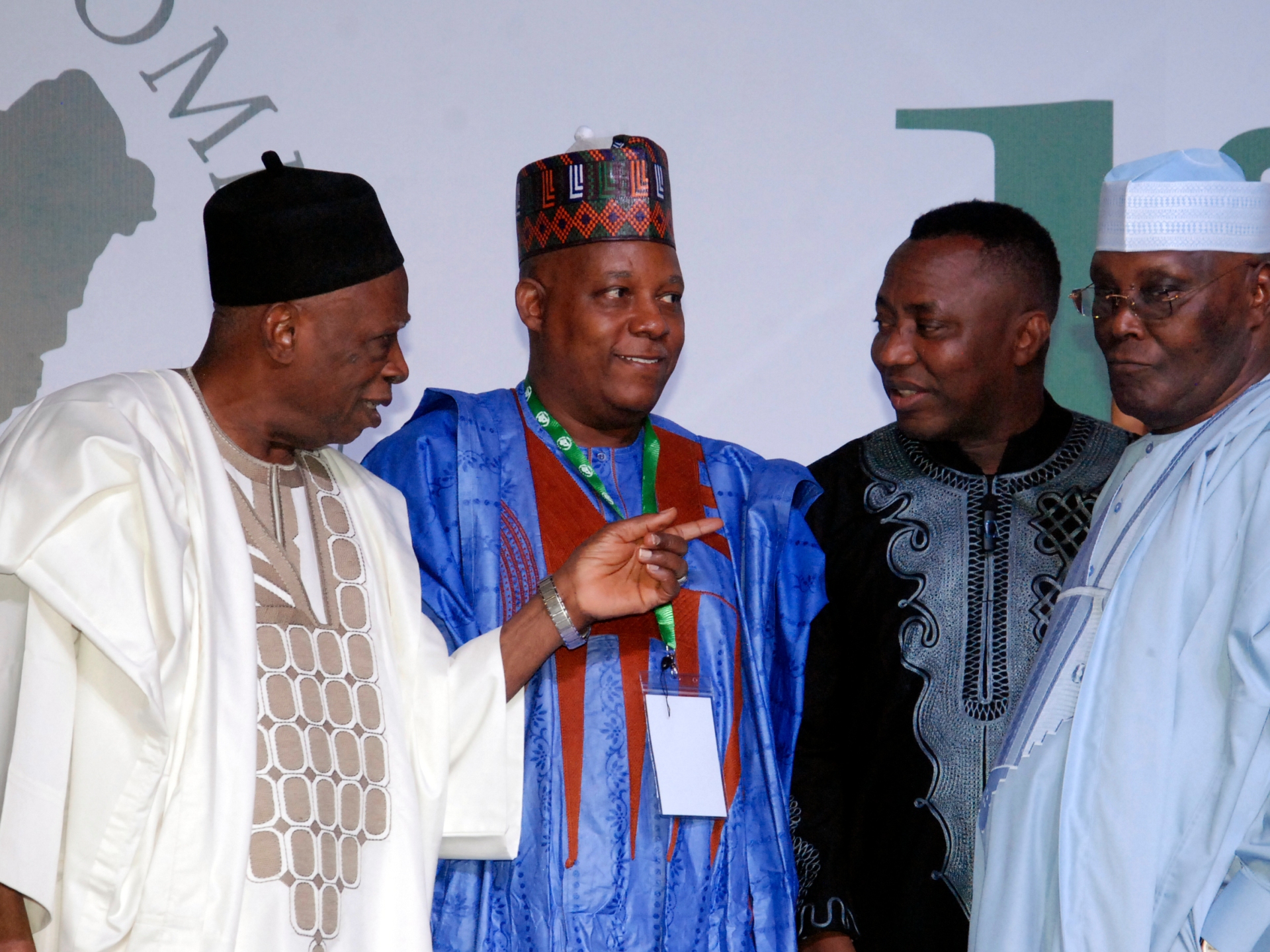Abuja, Nigeria – The 18 presidential candidates of Nigeria’s general election have signed a second peace accord in the capital, Abuja, in a bid to prevent unrest surrounding the February 25 polls.
The pact is to ensure “the conduct of free, fair, credible, transparent and verifiable elections cognisant of the need to maintain a peaceful environment before, during and after the 2023 general elections” and “to place national interest above personal and partisan concerns”.
An earlier agreement had been signed in September 2022, which former military head of state and retired general Abdusalam Abubakar said had been violated numerous times.
The Tuesday evening signing, organised by the National Peace Committee and the Kukah Leadership Centre, an Abuja-based think tank, was in the presence of President Muhammadu Buhari and other African and international leaders and diplomats.
Committee officials said the accord was meant to bind political parties, candidates and their supporters to resort to constitutional means if they are dissatisfied with electoral outcomes.
Abubakar, the chairperson of the National Peace Committee, said 44 percent of the September accord’s violations “were carried out by the spokespersons for political parties, 26 percent by party members, 19 percent by the presidential candidates themselves, 11 percent by the hardcore supporters and four percent by the chairmen of the parties”.
“As a nation, we’ve got to put a stop to all this,” he said, without providing further details about the incidents.
Saturday’s race to succeed Buhari is being keenly contested.
Among the 18 candidates, four are generally accepted to be top contenders.
The ruling All Progressives Congress (APC) candidate, former Lagos governor Bola Tinubu, faces his former associate and Nigeria’s former vice president Atiku Abubakar of the main opposition People’s Democratic Party (PDP).
The Labour Party’s Peter Obi, has, however, emerged as a surprise third candidate to challenge a traditional dichotomy in Nigeria’s political landscape. A fourth candidate, Rabiu Kwankwaso of the New Nigeria People’s Party (NNPP), is seen as a wild card in the race.
Tuesday’s signing was held in the presence of domestic and international stakeholders to monitor for potential violence – a common feature in Nigerian elections.
Along with the presidential candidates, members of observer missions from the African Union, European Union and the Commonwealth, and other diplomats were present at the signing.
Also present were Thabo Mbeki, Joyce Banda, Uhuru Kenyatta, John Mahama and Ernest Bai Koroma, the former presidents of South Africa, Malawi, Kenya, Ghana and Sierra Leone respectively who are heading foreign observer missions.
Africa’s richest man, Aliko Dangote, another member of the committee also attended, as was Patricia Scott, secretary-general of the Commonwealth and a representative of the United Nations secretary-general.
President Buhari urged all the contestants to have the “confidence to trust our legal systems”.
”Let me remind all Nigerians not for the first time that this is the only country we have and we must do everything to keep it safe, united and peaceful,” he said. “There should be no riots or acts of violence after the announcement of the election results. All grievances, personal or institutional, should be channelled to the relevant courts.”
Mahmood Yakubu, the chairman of the Independent National Electoral Commission, said election preparations were well under way with ballot papers and other materials being moved to polling units nationwide.
“By Friday we will activate the registration area centres so that at first light on Saturday, polling units will open on time.”
